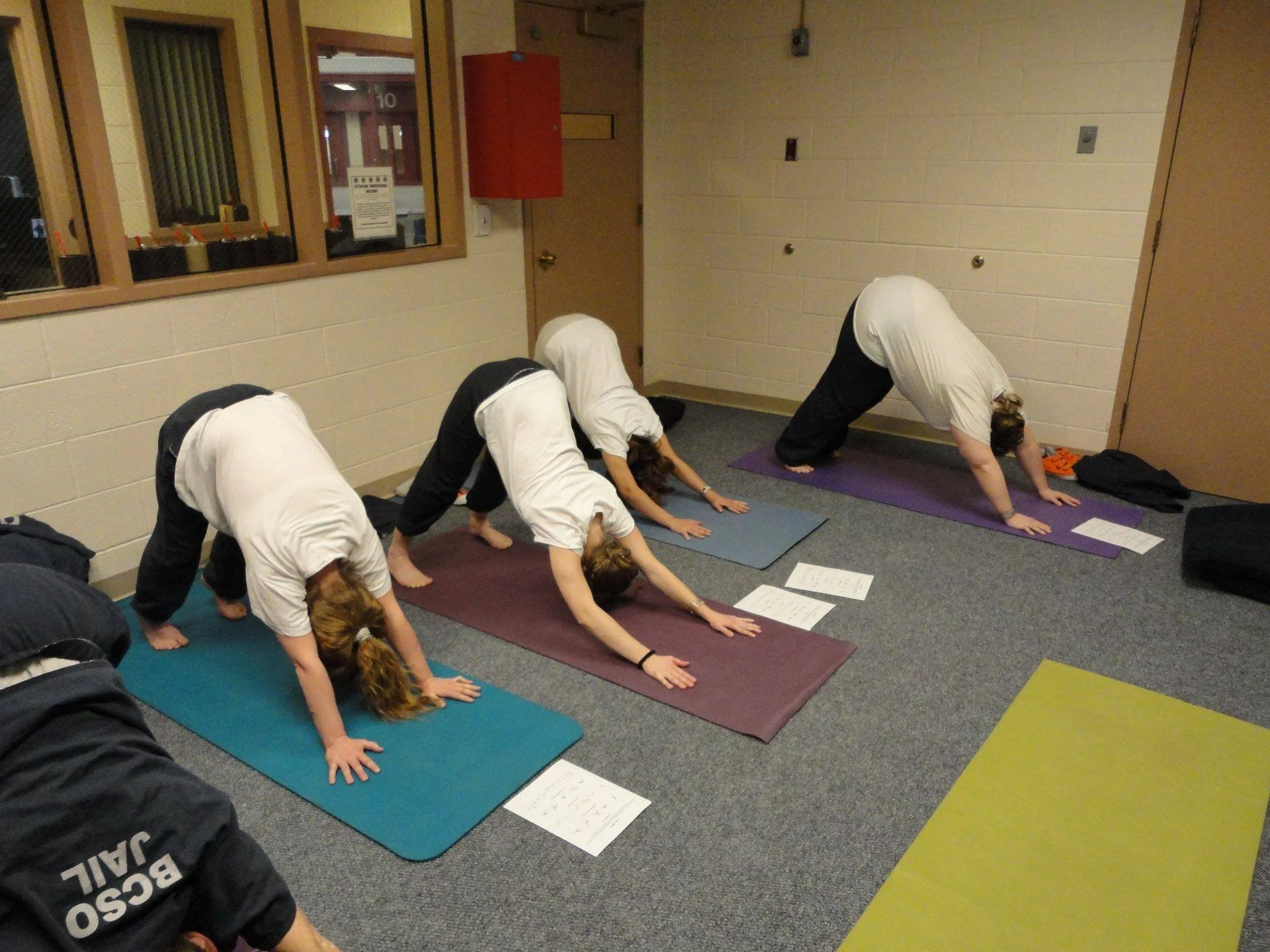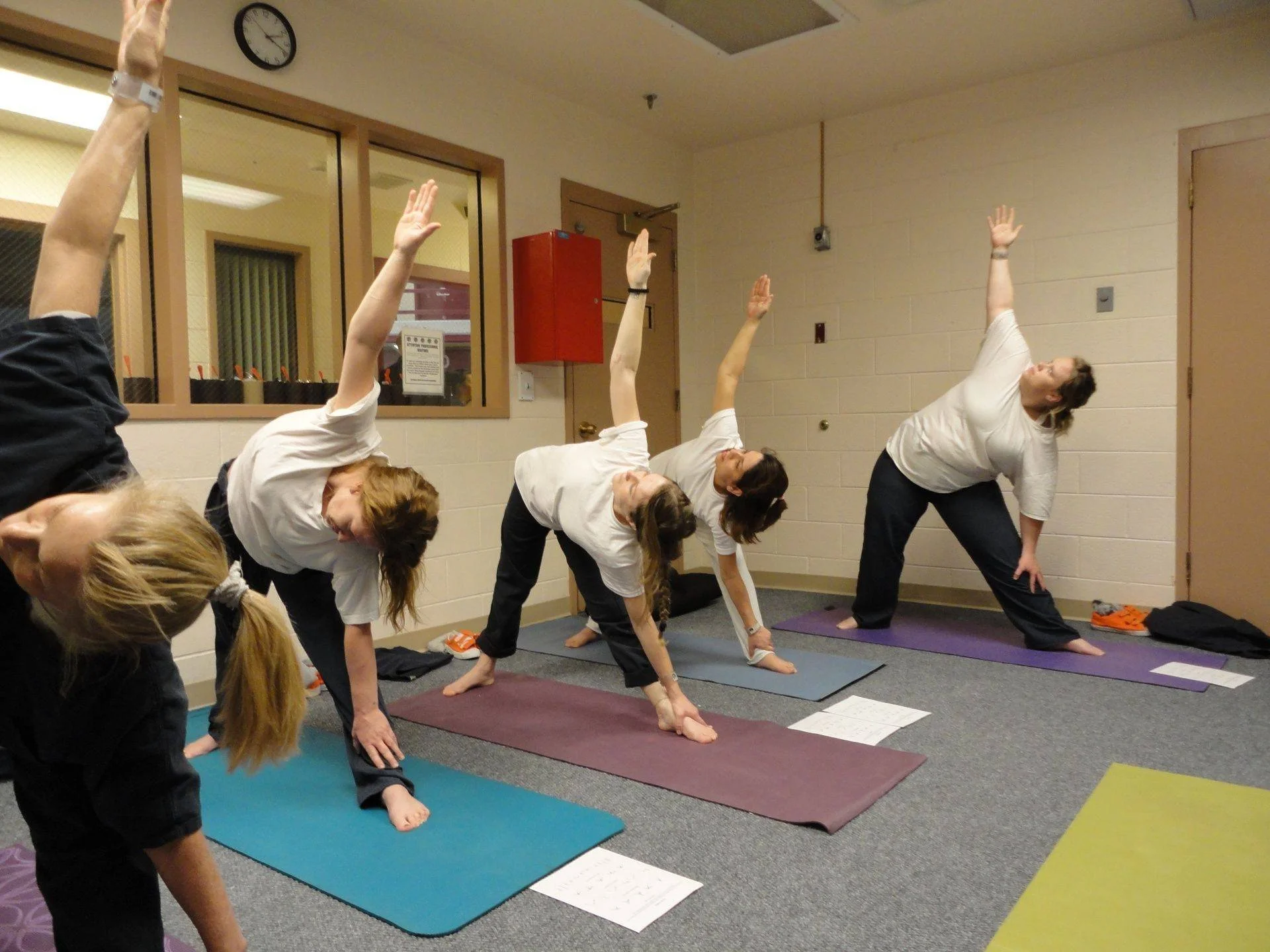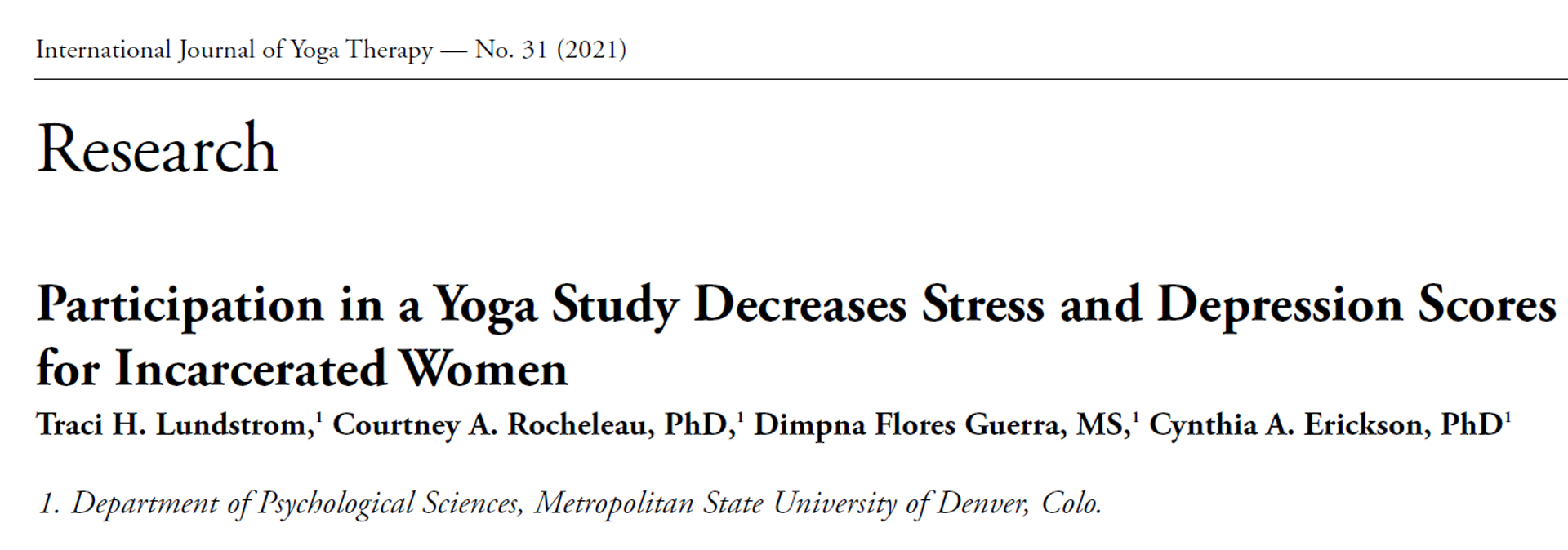Articles…Introduction to yoga
Articles…How All Around Yoga Grew
READ ARTICLE:
Yoga: How We Serve Incarcerated Women and Those in Transition- HuffPost
This is an interview with Traci Lundstrom, who began learning yoga while serving time in the Boulder, Colorado, county jail the fall of 2009.
READ ARTICLE:
Getting up off the (yoga) mat- RED
Provost's Award winner Traci Lundstrom runs a yoga program in the Boulder County Jail, helping women find a better path forward like she's found for herself.
READ ARTICLE:
This Boulder Woman Helps Inmates Treat Stress, Depression Through Yoga Behind Bars- Colorado Public Radio
READ ARTICLE:
From inmate to teacher: how Traci Lundstrom got the keys to the place that held her- Under the Flatirons
READ ARTICLE:
Meet Traci Lundstrom of All Around Yoga LLC- Denver Voyager
Interested in Yoga Research?
Traci Lundstrom, E-RYT 500 and owner of All Around Yoga developed research in the jail and conducted a study on the effectiveness of a short 5-day yoga intervention with female inmates. Additionally, Traci worked with professors and colleagues to publish a meta analysis that looked at over 100 yoga studies to determine the overall benefits found in yoga interventions. Take a look at the articles below!
The benefits of yoga as an intervention for depression: a meta–analysis
Volume 16 Issue 1 - 2023
Michael C. Rhoads, Nels Grevstad, Rena A. Kirkland, Madison E. Barber, Shannon Myers, & Traci Lundstrom
Published: January 11, 2023
Abstract
Depression is a major societal issue that affects a large proportion of the population. Yoga has been introduced as a viable alternative approach to reduce symptoms. While prior studies have used meta–analysis to examine the benefits of yoga for depression, these studies incorporated a small number of studies and were limited in their ability to conduct a sub–group analysis. The purpose of this study was to quantify the effect size of yoga in the treatment of depression. Inclusion criteria included experimental, quasi–experimental, and feasibility studies that examined yoga with physical postures (asanas) as a treatment for depression. Nine moderator variables were examined including type of yoga, components of yoga (i.e., breathing, meditation, or relaxation), experience of yoga instructor, depression diagnosis, type of comparison group, research design, and length of treatment. Risk of bias was assessed using the Jadad instrument. Electronic databases were used to identify studies, and the search concluded on January 31st, 2022. A total of 152 studies (150 articles) met the inclusion criteria in this meta–analysis with 8210 participants assessed. The overall weighted effect size of yoga for treatment of depression was Hedges’ g = 0.55 (95% CI 0.44–0.65), demonstrating a medium effect. Meta–regression and subgroup analyses found larger effect sizes as the amount of yoga practiced increased, when relaxation was practiced, and when participants had been clinically diagnosed with depression. Funnel plot and trim–and–fill procedure found little evidence of publication bias and the fail–safe number was 21783. These results demonstrate that yoga is an effective integrative approach in the treatment of depression. This study was limited by the methodological quality of the individual studies that make up the larger analysis, including participants who were not blind to the procedure and a failure to report withdrawals and dropouts.







